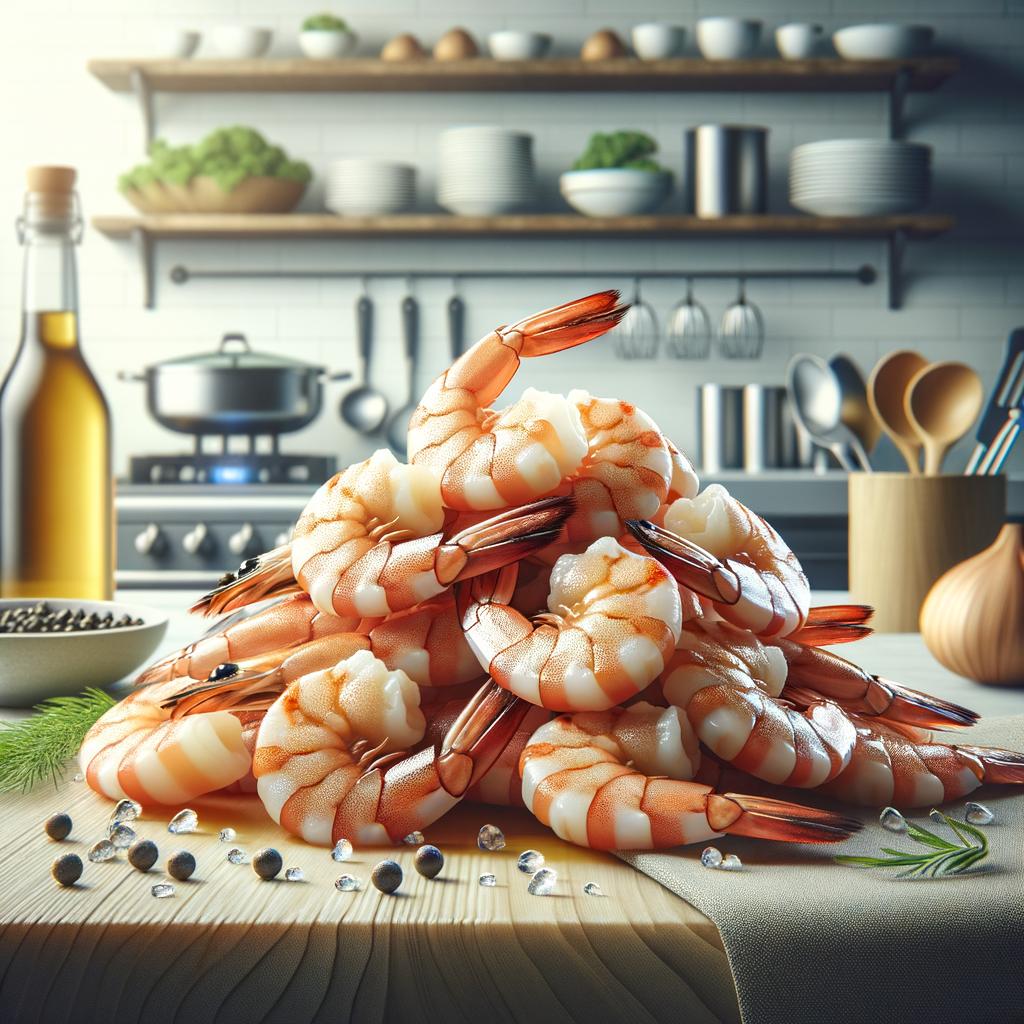Cooked Shrimp

Description Meet the cooked shrimp, a culinary delight that graces tables across the globe. These little treasures of the sea boast a vibrant pink hue when cooked, with a delicate curl that bespeaks their tenderness. The texture of cooked shrimp is firm yet succulent, with a satisfying bite that gives way to its unique flavor. Their flavor profile is a delicate balance of sweet and salty, with a hint of the ocean's brine that transports you straight to the shore. What sets shrimp apart from other seafood is their versatility, their quick cooking time, and their ability to absorb the flavors of the ingredients they are paired with.
Primary Uses Cooked shrimp is a star ingredient in a multitude of dishes across various cuisines. In Asian cooking, it's often stir-fried with vegetables or used in soups and noodle dishes. In Italian cuisine, it's a key component in a classic seafood pasta. It's also a popular choice for seafood paella in Spain, and let's not forget the classic shrimp cocktail of the West. Besides its culinary uses, shrimp shells are also used in creating rich stocks and broths, and in some cultures, they are believed to have medicinal properties, aiding in digestion and heart health.
History The history of shrimp is as diverse as the dishes they grace. They've been a staple in diets for centuries, with evidence of their consumption dating back to ancient times. The Romans were known to enjoy them, and there were even laws in place in Elizabethan England to protect the shrimp population. Over time, shrimp has evolved from being a food for the poor to a delicacy enjoyed by all. There's a charming folklore in Japan that associates shrimp with longevity, considering their bent shape symbolic of an elderly person.
Nutritional Information Not only is shrimp a culinary delight, but it also packs a nutritional punch. It's a fantastic source of protein, while being low in calories and fat. Shrimp is also rich in key nutrients like iodine, selenium, and vitamin B12. They contain omega-3 fatty acids, known for their heart health benefits. However, they are high in cholesterol, so it's recommended to consume them in moderation. Compared to other seafood like crab or lobster, shrimp offers a similar protein content but with fewer calories, making it a healthier choice for those watching their calorie intake.

